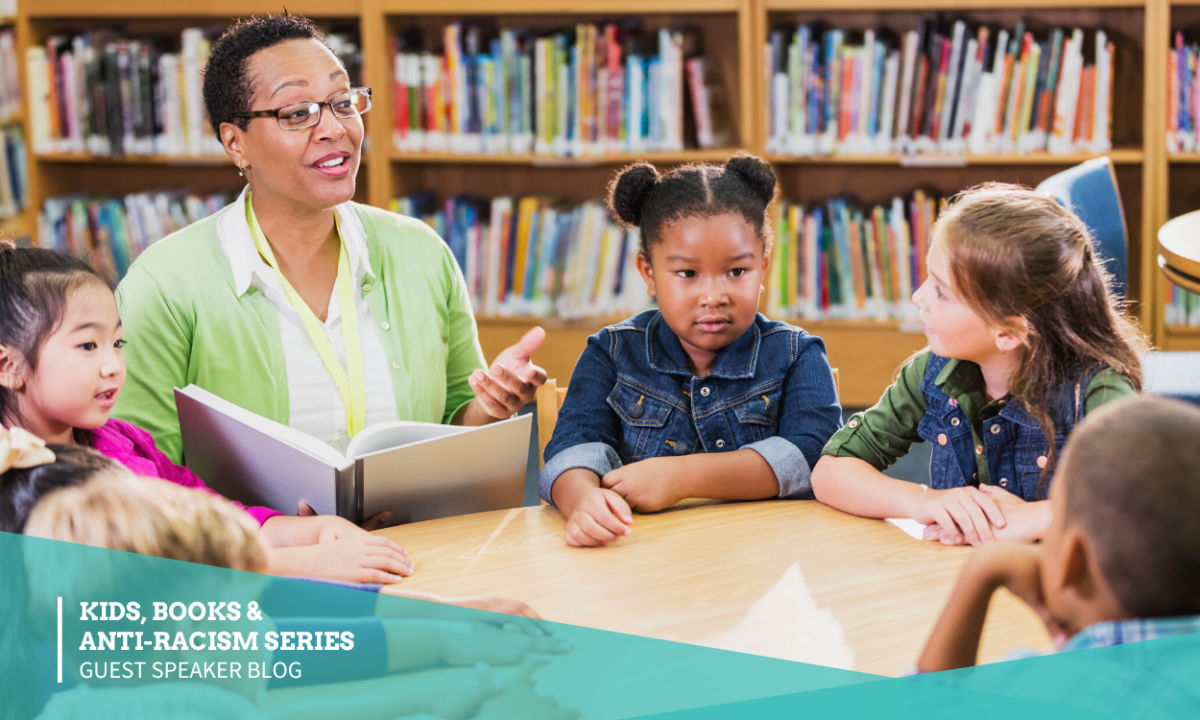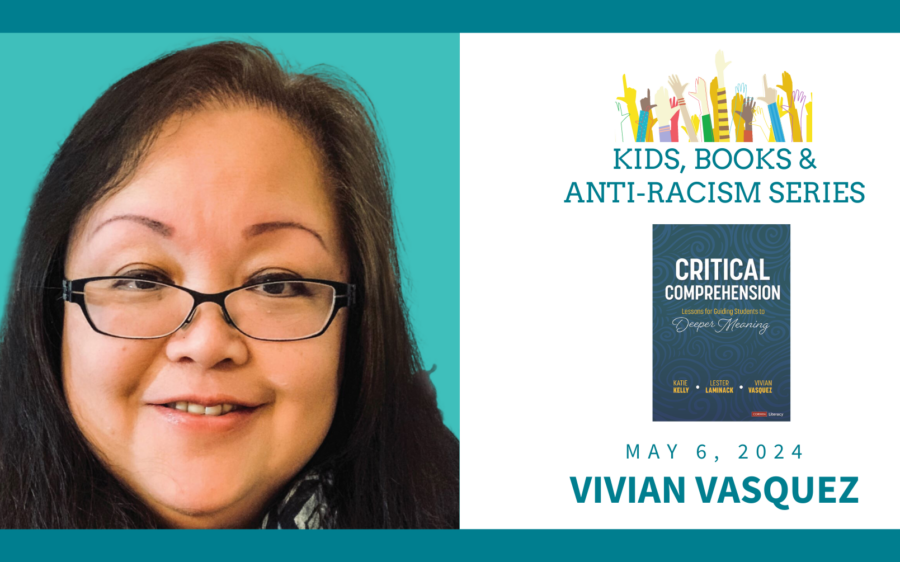Comprehension instruction with a social justice focus can support students to more deeply comprehend, develop critical thinking and empathy, and consider how to counteract social injustices. We can teach social justice-oriented comprehension like we teach other reading comprehension strategies – through the gradual release of responsibility (Pearson & Gallagher, 1986).
Justice questions are one way to develop justice-oriented readers. Justice questions are so important that you want students to ask themselves these questions every time they read. They start as external teacher language and are gradually released to become internal student thinking.
Step 1: Identify one to three justice questions.
Some examples from Conscious Classrooms (Briceño & Rodriguez-Mojica, 2022) include:
Grades K–2:
- Who are the main characters and how did you connect with them (or not)? (E.g., mirror, window, sliding glass door [Bishop, 1990]).
- Who is telling the story? Whose perspective is absent or silenced?
Grades 3–6:
- Whose perspective is heard, absent, or silenced? Is the perspective trustworthy?
- What are the author’s intentions? Do you agree with them? Why or why not?
- What connections can you make between the book and your family, community or current events? How does that connection help you better understand the book?
You get to determine the justice questions for your class. Consider collaborating with your grade level team and/or vertically aligning your justice questions with the grades before and after yours.
Step 2: Model, model, model.
We think aloud, or model our thinking so that students can understand the concept, then make it their own. We can model asking and answering justice questions during a whole-group read aloud, during small group, or during individual conferences. During a first grade whole group read-aloud of Carmela Full of Wishes by Matt de la Pena, the teacher’s modeling might go like this:
Teacher: Let’s consider our justice question, “From whose perspective is the story told?” I think this story is being told from Carmela’s perspective. I am excited for her birthday, and I’m sad when she mentions her father isn’t with her and her family. I’m seeing and feeling what Carmela is seeing and feeling, so the book is told from her perspective.
Repetition of the justice questions and our thinking process is critical; we can’t model just once and expect all kids to “get it.”
Step 3: Provide opportunities for students to practice with you and with one another.
This can be done using turn and talk in a whole group setting, or during small groups or book clubs. A third grade teacher might say the following:
Teacher: Just like we talked about perspective earlier today, when you’re in your book club groups, consider whose perspective is being told. Is it only one perspective, or are there different perspectives? Is it the perspective of a diverse character? What do you think of their perspective? Please make the justice question part of your book club discussion today. Remember that you can use your prompting cards and sentence stems to help you.
Don’t forget to formatively assess at each step in the process. Consider providing prompting cards or sentence stems as scaffolds during this stage. If a few students are struggling, you may choose to model for them in a small group or provide additional scaffolding or practice.
Step 4: Provide opportunities for independent practice and ongoing assessment.
This may be during a reading conference or via student writing. A fifth grade reading conference might go something like this:
Teacher: What justice question did you ask yourself about this book?
Student: I asked myself what the author’s intentions were. I think maybe R. J. Palacio wrote “Wonder” to help the reader understand what it’s like to have a face that’s different. Maybe other differences, too? I just finished chapter 3 so I’ll see if that’s right as I keep reading.
Since we read across the curriculum, justice questions can be practiced across the school day as we “apprentice” (Dorn, French, & Jones, 1998) students into deeper, justice-oriented comprehension that will make them more critical readers and therefore better future participants in our democracy.
References
Bishop, R. S. (1990). Mirrors, windows, and sliding glass doors. Perspectives, 1(3), ix–xi.
Briceño, A. & Rodriguez Mojica, C. (2022).Conscious Classrooms: Using Diverse Texts for Inclusion, Equity, and Justice. Benchmark.
Dorn, L. J., French, C. & Jones, T. (1998). Apprenticeship in Literacy: Transitions across Reading and Writing. Stenhouse.
Pearson, P. D., & Gallagher, M. C. (1983). The instruction of reading comprehension. Contemporary Educational Psychology, 8(3), 317–344.
Children’s Books Cited
de la Peña, M. (2018). Carmela Full of Wishes. G.P. Putnam’s Sons.
Palacio, R. J. (2012). Wonder. Knopf Books for Young Readers.

Continue the learning!
To further explore this topic and your role as an educator in enacting change through the lens of anti-racism, kids, and books, join us for a live and on-demand professional learning series featuring Allison Briceño, Lorena Escoto Germán, and Afrika Afeni Mills.
Allison Briceño will open the series on February 8, 2023 with her session titled Creating Conscious Classrooms: Using Diverse Books for Anti-Racist Teaching. Allison’s participation is sponsored by Benchmark Education Company.





